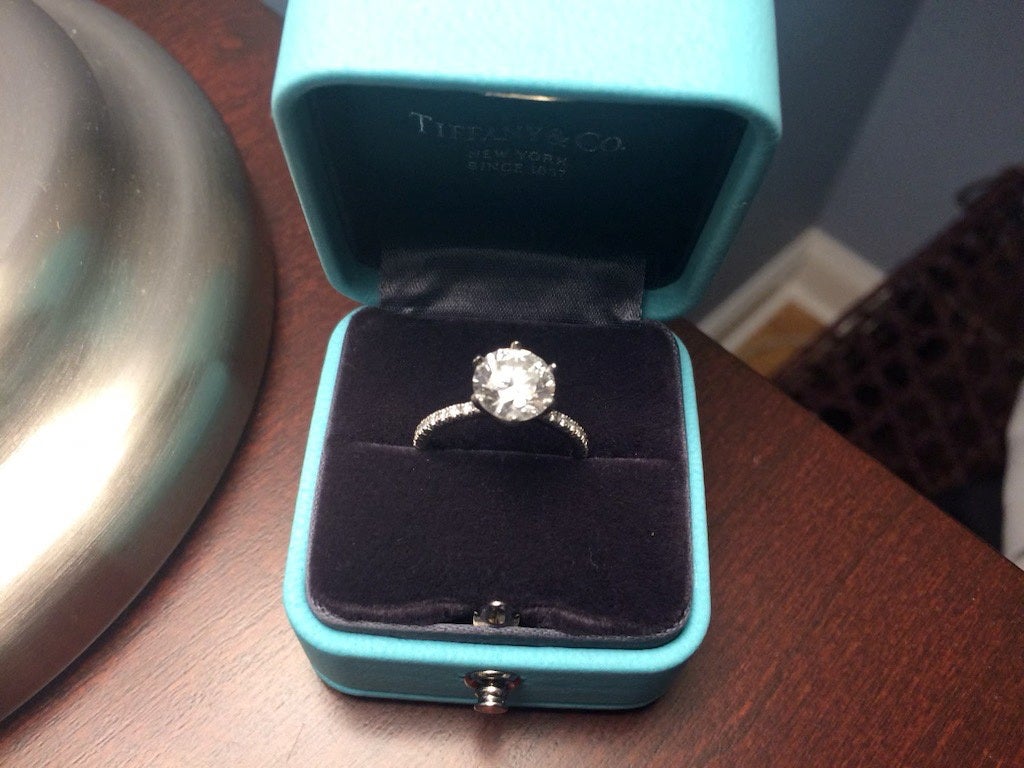Court to decide if woman can keep $70,000 engagement ring after man calls off wedding
Rules of engagement: There is currently a special ruling for the rings

Your support helps us to tell the story
From reproductive rights to climate change to Big Tech, The Independent is on the ground when the story is developing. Whether it's investigating the financials of Elon Musk's pro-Trump PAC or producing our latest documentary, 'The A Word', which shines a light on the American women fighting for reproductive rights, we know how important it is to parse out the facts from the messaging.
At such a critical moment in US history, we need reporters on the ground. Your donation allows us to keep sending journalists to speak to both sides of the story.
The Independent is trusted by Americans across the entire political spectrum. And unlike many other quality news outlets, we choose not to lock Americans out of our reporting and analysis with paywalls. We believe quality journalism should be available to everyone, paid for by those who can afford it.
Your support makes all the difference.He put a ring on it. Can he get it back?
That’s the question a court will tackle on Friday when it hears arguments over who is entitled to a $70,000 Tiffany engagement ring after the would-be groom called off marriage plans and sued his former fiancee for it back.
The Massachusetts Supreme Judicial Court will decide not just whether to side with Bruce Johnson or Caroline Settino but whether to modernize the New England state’s law on engagement rings and maybe even break with other states by no longer bestowing special legal treatment on such rings – a system critics say often unfairly benefits would-be grooms.
“Absent the history of sexist suspicion of women, there would not be a special rule for the ring,” said Rebecca Tushnet, a Harvard Law School professor and engagement ring law expert.
Johnson, a retired senior staff engineer at Siemens, and Settino, a former schoolteacher, met at a bar in Hingham, Massachusetts. He popped the question in 2017 with the $70,000 ring.
But as wedding planning proceeded, Johnson in court filings said he came to suspect his fiancee was having an affair after seeing messages on her phone with another man, and called off the wedding.
Settino denies Johnson’s accusations, saying the man was a decades-old friend. Johnson took Settino to court to get the ring back, but a judge concluded he was mistaken about the affair and must bear fault for their separation.
That decision was reversed by an appeals court last year. It concluded that while Johnson may have been motivated by a mistaken belief, under current law that did not mean he was unjustified in breaking off the engagement.
Settino then appealed to the state high court. She said she has fought to keep the ring out of principle.
“I won’t wear that ring ever again,” Settino said, when asked about a potential victory.

Lawsuits seeking the return of rings are essentially the last remaining type of litigation over broken engagements recognized by U.S. courts, after states in the 1930s started to abolish “heart balm” claims women previously had been able to pursue when a marriage promise was called off.
Initially, many states handled cases over rings the way Massachusetts’ top court decided to in 1959, when it said the giver of an engagement ring is entitled to its return so long as that person was not “at fault” for breaking the engagement.
But now, a majority of states including New Jersey, New York and Pennsylvania treat an engagement ring as a conditional gift that should be returned to the giver upon the end of an engagement, regardless of fault.
That approach came into vogue as states embraced no-fault divorce. Yet critics, including Tushnet, say it perpetuates gender bias. Brides’ families in the U.S. often pick up the tab for wedding ceremonies, yet only the engagement ring can be sued over when nuptials are called off.
“The ring is contingent on, ‘You’re with me, and as long as you’re with me, you’re mine,’” Settino said. “That’s what I find archaic about the law.”
She said courts should get out of the business of regulating engagement rings, which is what the Montana Supreme Court did in 2002 when it charted a new path with a no-take-backs policy that treated the ring as no different than any other gift.
Johnson, too, wants a revamp of Massachusetts’ rules of engagement. But he is urging the court to adopt the no-fault approach most states follow. His lawyer did not respond to requests for comment.
The ring, meanwhile, remains in escrow while the dispute plays out.
Join our commenting forum
Join thought-provoking conversations, follow other Independent readers and see their replies
Comments